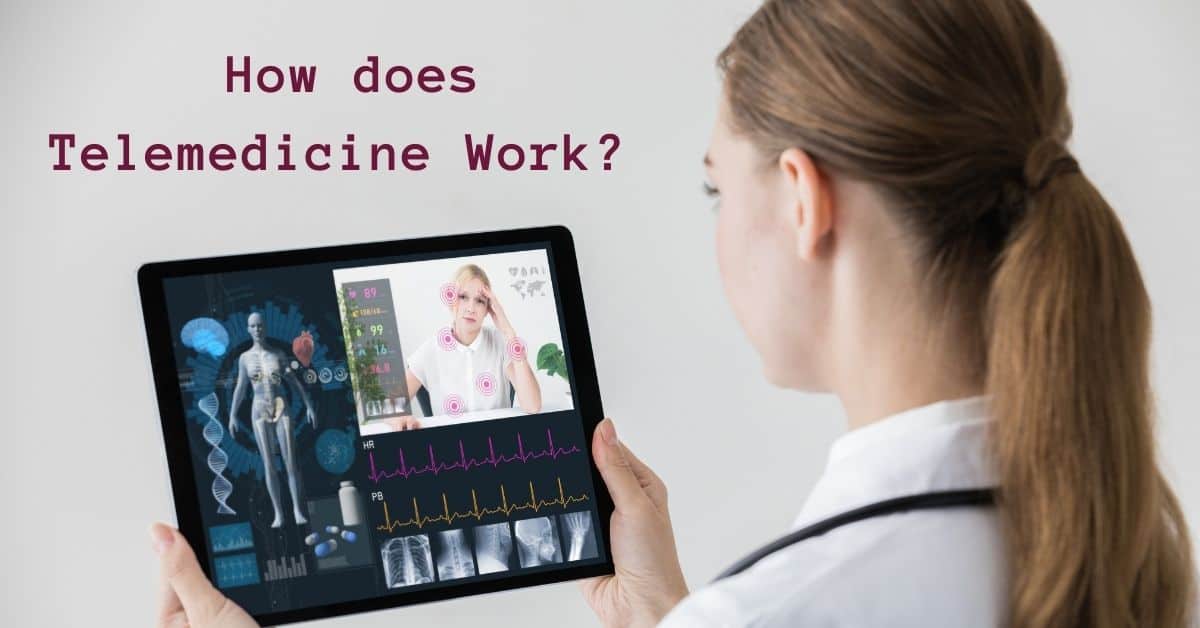For many people the idea of a doctors appointment done by phone seems strange, but the current coronavirus pandemic has put telemedicine front and center. While telemedicine is a great way to keep doctors and patients safe from exposure, telemedicine can present hurdles for people with hearing loss.
Telemedicine has actually been around for decades as a convenient and effective option for general medical care. While it has been an option for years, the current situation has made it clear that telemedicine needs to take into account accessibility and patient comprehension in order to be a better option for more people.
What Is Telemedicine?
Telemedicine is medical care administered over a phone or computer rather than in-person. While not suited to every situation, telemedicine has many advantages – it allows doctors to check in remotely on patients and offer prescriptions, diagnoses, education and monitoring. With the rise of access to technology like smartphones, the scope of telemedicine has expanded from telephone calls to video chatting which allows for visual examinations as well.
In a standard telemedicine appointment a doctor may set up an audio or video call with you. They will ask you for your symptoms and follow up on previous health issues. For your maximum benefit, take the time to answer your medical provider’s questions honestly and in-depth. At the conclusion of your telemedicine visit, your doctor will assess your medical concerns and go over their analysis with you. If applicable, they will refer you to a specialist or write you a prescription. They may also schedule a follow-up call or next visit.
While telemedicine is beginning to firmly establish itself in our culture, it needs to acknowledge and address several accessibility needs, including issues that may arise for patients with hearing loss.
Telemedicine and Hearing Loss
When communication is happening over the phone or even via video chat the audio can be difficult for a person with hearing loss to follow. This can be especially concerning for those engaging in telemedicine visits where important health information is being discussed. If you are a person with hearing challenges, you will need to be aware if your hearing needs are being met.
When possible, opt for a video chat with your medical provider over an audio telephone call. Video chats may feel less private, but they have some important benefits. First, video allows you to follow the mouth movements and facial expressions of your medical provider, giving you important clues to understand what is being said. Video chatting also grants you the ability to show physical concerns or injuries to your provider. Most platforms for video chatting will allow you to record a conversation for later viewing. Many video chat options also feature live captioning to further enhance comprehension.
With all these advantages, video telemedicine is often theright choice for people with hearing loss, but it isn’t the only option.Those without the technology or adequate internet connection may benefit the most from a standard phone call where audio is less likely to be fragmented or distorted by internet service shortcomings. A standard phone call may also feel like a more private option.
One way to be sure that you are understanding the medical care offered to you in a telemedicine visit is to cross-check what you hear with your doctor. At the end of your visit, or after any care instructions, summarize and repeat the information back to your doctor to make sure you understand your prognosis and course of treatment correctly.
Many telemedicine visits are also giving patients the option to text or chat with their medical provider. Texts and chats have all the advantages of the written word – transcripts can be saved to refer to later and comprehension is not dependent on the sense of hearing.
Hearing Loss and Your Total Health
Hearing loss doesn’t just impede your ability to understand your health, it is intimately connected to it. Hearing health plays a role in your mental, emotional and physical health which is why it is important to take hearing issues seriously and treat them early. Hearing loss when treated with hearing aids makes everyday comprehension easier and more natural. When it comes to factors like understanding your medical care, treating your hearing loss is your first step to better wellbeing.
Contact us today to schedule an appointment.

